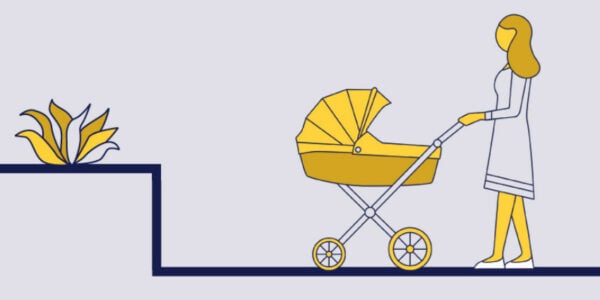The acute pain and stress experienced by all involved in cases where a baby is removed from their mother at birth – both family and practitioners – is shown in a rapid evidence review and a case law review published today by the Nuffield Family Justice Observatory (Nuffield FJO).
The reviews follow previous Nuffield FJO research which revealed the increasing numbers of newborn babies who are subject to care proceedings in England and Wales – a figure that has more than doubled in the last decade.
Many cases in the new reviews demonstrate the effectiveness of the current legal framework in protecting children, but the studies also reveal evidence of inconsistent practice, such as delays and insufficient time for robust pre-birth assessment, misunderstandings of the legal framework or a failure to follow due process, which can lead to insensitive practice or injustice.
In light of the issues raised and the limited national guidance or training available for professionals, Nuffield FJO will develop the first national, evidence-informed good practice guidelines for professionals involved in the process of removing newborn babies from their mother at birth for child protection reasons.
The guidelines will be developed over the next 18 months by researchers at Lancaster University and the Rees Centre at the University of Oxford, led by Professor Karen Broadhurst. The team will be working closely with health and social work professionals and birth parents.
The guidelines will then be piloted in eight local authorities and health trusts during a six-month period and used in at least 30 child protection cases involving newborn babies. The ambition is for the guidelines to be adopted and developed into guidance by local authorities, health authorities, the police and the judiciary throughout England and Wales, and for local authorities and the judiciary to understand why so many infants are being taken into care and to explore measures to prevent this.
Lisa Harker, Director of Nuffield Family Justice Observatory said:
“Over the past decade there has been a sharp rise in infants in care proceedings, with marked regional variation in the number of cases. In this context, Nuffield Family Justice Observatory is working in partnership with local authorities to understand the reasons behind these increases and variations, and to support the development of good practice.”
Professor Karen Broadhurst, lead researcher on the Born into care project said:
“We are delighted to be working in partnership with both professionals and family members across England and Wales to deliver this participatory project. We are also privileged to be supported by an outstanding advisory board chaired by Sally Jenkins (Head of Children and Family Services at Newport City Council) and a dedicated birth mothers’ group. This new Nuffield FJO project promises to make a real difference to the experience of infants and family members, when local authorities take the very difficult decision to issue care proceedings at birth.”
This work builds on the Nuffield FJO’s Born into care England and Wales reports. Born into care England found that in 2007/8, care proceedings were issued with respect to a total of 1,039 newborns (32% of all cases involving infant age under 1 year). By 2016/17, this number had more than doubled at 2,447 newborns (42% of all infant cases). There were also significant regional differences – reinforcing the need to test the guidelines in different areas of the country.






